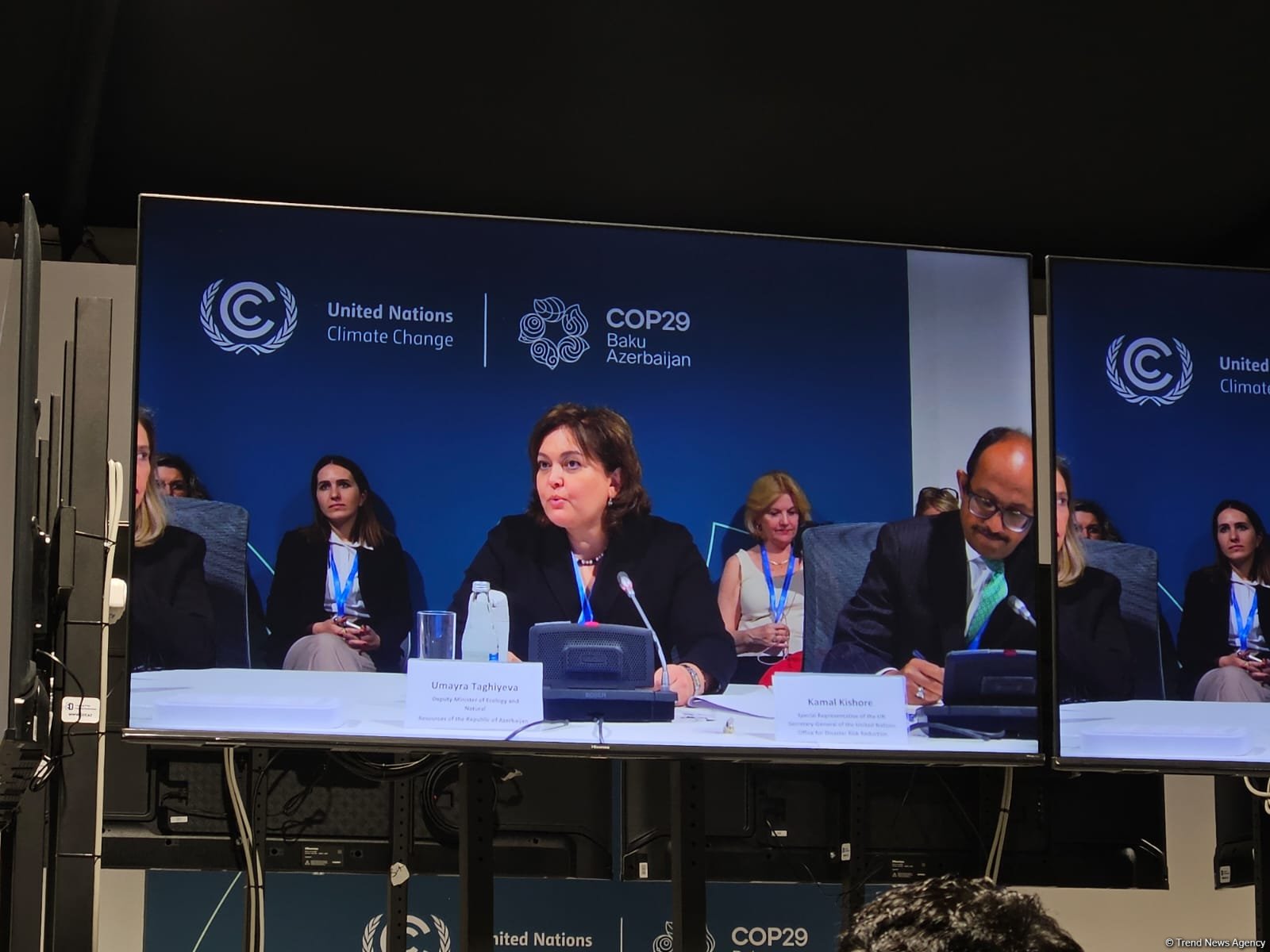BAKU, Azerbaijan, November 16. Countries and communities should develop early warning systems as part of adaptation solutions, the Deputy Minister of Ecology and Natural Resources Umayra Taghiyeva said at a high-level event on Strengthening Climate Information and Multi-Hazard Early Warning Systems for Increased Resilience, Trend reports.
“Since the beginning of COP29, several high-level events have been held on early warning systems. The COP29 presidency has reinforced international messages, including the Early Warning for All initiative, which includes three open initiatives,” she said.
According to her, building effective early warning systems requires not only the efforts of governments but also the active and continuous involvement of all stakeholders, including local communities and national and international organizations.
Taghiyeva added that the public and private sectors, civil society, and other key actors, as well as effective knowledge management, play an important role in this process.
“The world is already facing changes such as shifting average temperatures, changing seasons, and an increase in the frequency of extreme weather events and slow processes. Countries and communities must take action to respond to the current and future impacts of climate change,” the Deputy Minister emphasized.
To note, the 29th session of the Conference of the Parties to the UN Framework Convention on Climate Change (COP29), which will run until November 22, opened at the Baku Olympic Stadium on November 11. It is the largest event organized by Azerbaijan to date, and the first time in the region that it is being held in Azerbaijan.
Within COP29, the highest level event - the summit of world leaders on climate action – was held on November 12–13.
The main expectation from COP29 is to agree on a fair and ambitious New Collective Quantitative Goal (NCQG) on climate finance. The COP29 chairmanship has launched 14 initiatives that include linkages between climate action and the Sustainable Development Goals, including green energy corridors, green energy storage, harmony for climate resilience, clean hydrogen, methane reduction in organic waste, action on green digital technologies, and other topics.
In addition to being a top priority that creates the conditions for action, creating climate finance will also help fulfill the 1.5°C pledge by bringing everyone together.
The UN Framework Convention on Climate Change is an agreement signed at the Rio Earth Summit in June 1992 to prevent dangerous human interference in the climate system. The acronym COP (Conference of Parties) stands for “Conference of Parties” and is the highest legislative body overseeing the implementation of the Framework Convention on Climate Change.
A total of 198 countries are parties to the Convention. Unless otherwise decided by the parties, COP is held annually. The first COP event was held in March 1995 in Berlin, and its secretariat is located in Bonn.
Stay up-to-date with more news on Trend News Agency's WhatsApp channel







